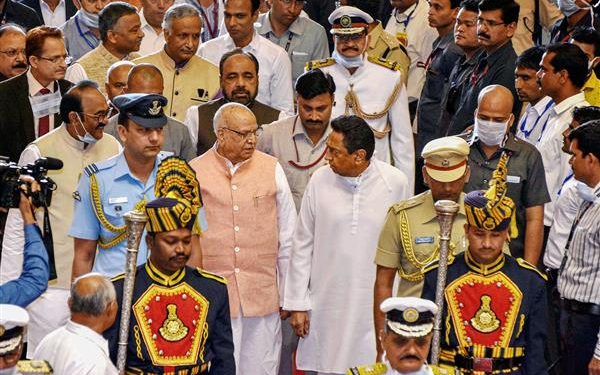Through a deft move, Madhya Pradesh chief minister Kamal Nath has bought political time by invoking a health related (COVID-19) fear and postponing the Assembly session by 10 days. This, at a time when it was widely perceived that his ministry’s fall was imminent. With a vertical split in the ruling Congress legislature party and senior leader Jyotiraditya Scindia walking away to the BJP with support from a substantial section of the MLAs, there was no way the chief minister could have stemmed the tide against him.
The BJP was waiting in the wings to form an alternative ministry, possibly headed by former CM Shivraj Singh Chouhan. That was the inference drawn from the saffron party’s offer of a Rajya Sabha seat to Scindia, who had been defeated in the last LS polls in 2019 from Guna. He is likely to get a slot in the Union ministry.
For now, Kamal Nath has outwitted the BJP, but nothing goes to show he will have the last laugh. He may attempt buying up a section of the BJP legislators but this is easier said than done, also considering the provisions of the anti-defection law. How this law will respond to Scindia and his group of MLAs also is a big question.
What is clear is that Kamal Nath will not leave the chair without a fight. Considering his skills at manoeuvring and the resources at his command, the CM is sure to make a try. Ten days might now be sufficient time for the CM to turn the tables on those seeking to pull him down, and how the drama unfolds will be a curious spectacle. The BJP has approached the Supreme Court to petition against the suspension of the Assembly session for 10 days, and how the apex court would look at this remains to be seen.
It needs restating that what accentuated the present plight of the Congress party in Madhya Pradesh, as also elsewhere, is the sense of disillusionment within the tricolor party over the failure of the central leadership to set its house in order. Sonia Gandhi remains as a stop-gap arrangement in the president’s chair after son Rahul Gandhi quit the post. This, after the LS poll results hurt the party immensely. The rank and file does not know what future awaits them, also considering the overdrive of the BJP to create a Congress-mukht Bharat. The natural inclination of Congressmen is, understandably, to look to greener pastures. Politics is a tough game, and survival is not easy. This is evident in Gujarat too, where on the eve of the Rajya Sabha polls, some Congress MLAs are willing to desert the party, to the advantage of the BJP. A similar scenario could be expected from other states too.
Assembly elections, one after another, are proving the steadily diminishing popularity of not only the Congress party but also the Bharatiya Janata Party (BJP) too. In Maharashtra and Jharkhand, the party is a sidekick for the Shiv Sena and the JMM respectively to run the governments while the BJP has been pushed to the Opposition benches. Similarly in the national capital of Delhi, where too the Congress ate a humble pie in the recent assembly polls, the BJP’s performance was extremely poor. It is another matter today that Delhi CM Kejriwal is eating humble pie from the BJP. The manner in which he conducted himself during and after the communal violence in North East Delhi speaks volumes of his weak character and inability to stand up for any beliefs.
The stark reminder from all these state elections is that the obituary of the Congress party is being written. While those like Shashi Tharoor have called for inner party organizational elections, but that is not part of the Congress culture so would never happen.
If the Congress party departs into oblivion, democracy in India might itself face a serious existential problem. Regional leaders eyeing for power in Delhi have little or no locus standi at the national level as many of them have proved themselves to be highly inefficient if not blatantly corrupt. Even Mamata Banerjee, who is a front-runner for the PM post and enjoys a clean image, seems to have failed to grow beyond her state. Coalition governments at the Center, in the past, often failed to carry forward their agendas as they had promised to the electorate. When too many regional politicians eye for power in Delhi, that may only help the BJP and its leadership to carry on in power and engage in the game of ‘divisive politics’. The recent Delhi riots are a stark reminder of how the scenario can worsen when the people in power want to divide society to divert people’s attention all the time because they are failing in all vital fronts such as economy, social security and external affairs.







































